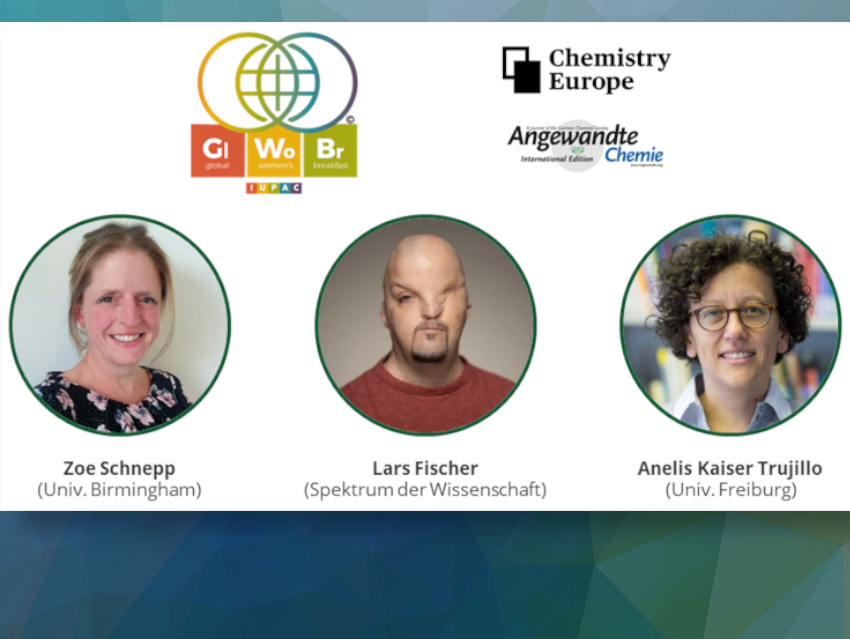Catalyzing Diversity in Science: Disability and Gender in STEM was the motto of a networking event hosted by Chemistry Europe and Angewandte Chemie on 27 February 2024. About 85 participants gathered in the Wiley-VCH offices in Berlin and Weinheim, Germany, as well as online to learn more about diversity in science, exchange ideas, and share their own experiences. The event was part of the IUPAC Global Women’s Breakfast 2024, which is held in conjunction with the U.N. Day of Women and Girls in Science and aims to establish an active network of people of all genders to overcome the barriers to gender equality in science.
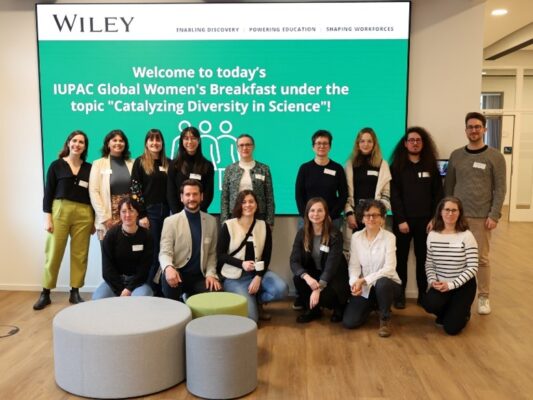
Stimulating input talks were given by guest speakers Professor Zoe Schnepp, University of Birmingham, UK, Lars Fischer, Spektrum der Wissenschaft, Heidelberg, Germany, and Professor Anelis Kaiser Trujillo, University of Freiburg, Germany. This was followed by an extensive networking session with lively discussions between academic researchers, industry professionals, science communicators, representatives of the German Chemical Society (GDCh), and editors of the Chemistry Europe journals and Angewandte Chemie.
Making Chemistry Accessible for Pupils with Vision Impairment
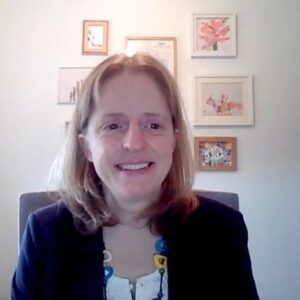
Zoe Schnepp opened the event with a talk about making chemistry more accessible for students with vision impairment and the initiatives of her ChemBAM outreach project. “We take for granted how much we use our eyes in chemistry”, Schnepp said, emphasizing how heavily science relies on visual observation. As alternative ways of teaching chemistry with the other senses she presented exciting examples like smell-based pH titration with onions and tactile molecular orbital diagrams made of interlocking toy bricks. She described developing accessible experiments as a fun challenge that benefits both sighted students and those with vision impairment.
Disability in a Science Career – An Unusual Personal Perspective
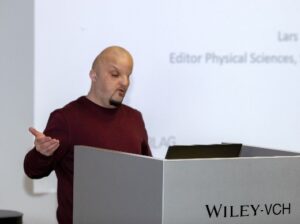
Lars Fischer, who received the GDCh Award for Journalism and Literature 2022, gave a personal account on disability in a science career. “Disability is often overlooked”, he stated while describing the challenges disabilities imposed on his professional career and private life, but also the useful skills he learned from dealing with these challenges.
Fischer said living with disabilities takes effort and strength, and that many disabled people always feel like they have to prove themselves to prevent being put in a box that is perceived as inferior. He wishes for a support system focused on the mental health of disabled people to help them cope with this stress. Once in place, such a support system would be a benefit for everyone seeking help for their mental health.
Sex/Gender of the Brain: What About Intersectionality and Diversity?
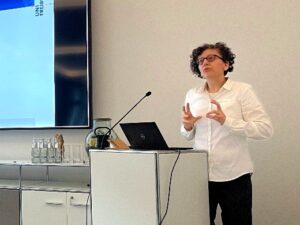
Anelis Kaiser Trujillo moved the focus from disability to a broad perspective on intersectionality and gender. After an introduction to general concepts, she raised the question whether your sex or gender identity affects the research you do. Evaluating a survey of participants of a global neuroscience conference, she and her team found that non-binary and genderqueer researchers examined questions of sex and gender in the most complex and elaborate ways.
Furthermore, she discussed how intersectional categories are required to represent the different dimensions of identity in research on facial recognition as well as the concept of neurodiversity, a more respectful and empowering alternative to deficit-oriented descriptions in neuroscience. While these are not standard questions and topics for chemistry-related research, discussions after her talk put a spotlight on the fact that who does research in chemistry and STEM does have a bearing on how the research is done – a very relevant point for everyone.
Get-Together/Networking

The attendees gave high praise for the event: “It was very insightful and brought attention to the most underrepresented groups, too”, one participant said, “we definitely need more of such events.” Another one stated that “it helped me better understand what more to consider and do in terms of accessibility and inclusion.”
The event was particularly empowering for an attending researcher who is directly affected by the intersection of gender issues and disability. “It was so good to hear of other people who had similar experiences”, they said, “and not feel like a failure who gets overwhelmed by the challenges”.
The editorial teams of Chemistry Europe and Angewandte Chemie are already looking forward to hosting the next edition of the Global Women’s Breakfast next year.
Further Reading
- Z. Schnepp, R. Watson, Making chemistry accessible for learners with vision impairment, Commun. Chem. 2023, 6, 232. https://doi.org/10.1038/s42004-023-01033-x
- S. Melaku, J. O. Schreck, K. Griffin, R. B. Dabke, Interlocking Toy Building Blocks as Hands-On Learning Modules for Blind and Visually Impaired Chemistry Students, J. Chem. Educ. 2016, 93, 1049. https://doi.org/10.1021/acs.jchemed.5b00252
- V. Koester, C. Remenyi, L. Fischer, Interview with Lars Fischer: Science for All – With a Very Personal Approach, ChemistryViews 2022. https://doi.org/10.1002/chemv.202200091
- A. Kaiser Trujillo et al., Researchers’ sex/gender identity influences how sex/gender question is investigated in neuroscience: an example from an OHBM meeting, Brain Struct. Funct. 2024. https://doi.org/10.1007/s00429-023-02750-8
- Special Collection in ChemPlusChem: “Ibero-American Women in Chemistry”
- Special Collection in Helvetica Chimica Acta: “Women in Science 2024”
